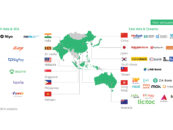
Thailand Seeks to Join the Digital Bank Race in Southeast Asia
by Fintech News Singapore February 3, 2022The Bank of Thailand (BOT) is looking to issue guidelines for virtual banks in the country in a bid to play catch-up with neighboring countries Malaysia and Singapore who have already set their plans in motion.
In line with this, BOT is seeking feedback from the public for its plans for “Repositioning Thailand’s Financial Sector for a Sustainable Digital Economy” by 28 February 2022.
The regulator is seeking to promote healthy competition between new fintech players and incumbent banks to drive innovation and better financial services.
BOT said that it will extend the “business scope and increase flexibility” of the incumbent banks to ease this.
It will also be working on building an open infrastructure to allow more players to access key infrastructure at fair and reasonable costs.
The key infrastructure includes the payment system, the retail central bank digital currency and the credit guarantee mechanism suitable for diverse funding needs.
Additionally, BOT will also be focused on open data to allow consumers to conveniently share their information under the open banking initiatives.
The regulator also indicated that it will be looking to manage the transition towards sustainability in a two-pronged approach by steering the financial sector to incorporate environmental risk assessment into their business operations as well as supporting the households to make a smooth transition through promoting financial and digital literacy.
Bank Negara Malaysia will soon issue licenses to five of the 29 applications that it had received last year.
Meanwhile, the Monetary Authority of Singapore gave out full digital bank licenses to the Grab-Singtel consortium and SEA Group while awarding digital wholesale bank licenses to Ant Group and a consortium comprising of Greenland Financial Holdings, Linklogis Hong Kong, and Beijing Co-operative Equity Investment Fund Management.





